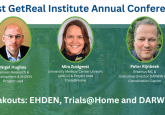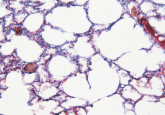Target RWE real-world data registry for eosinophilic gastrointestinal disorders passes 1000 patient milestone

Target RWE announces that enrollment to its real-world data registry to advance real-world evidence in eosinophilic gastrointestinal disorders has surpassed 1000 contributors.
Real-world evidence (RWE) company Target RWE has issued a press release publicizing that patient enrollment to its eosinophilic gastrointestinal disorders (EGIDs) disease state registry has now exceeded the milestone of 1000. It is hoped the real-world insights gained from analysis of the amassed and curated real-world data (RWD) will inform the development of effective, long-term treatments for these relatively unstudied, complex conditions.
At the start of 2023, Target RWE launched 35 real-world observational disease state registries for a range of conditions with high unmet need. Their recent release of the new Syndicated Science Insights suite of analytical solutions for advancing the generation of RWE is now being closely followed by this latest announcement celebrating the growth of their EGID registry beyond the milestone of 1000 enrolled participants.
EGIDs are a group of immune-mediated chronic gastrointestinal diseases, affecting various parts of the digestive system, that have a possible linkage to food allergen exposure. Whilst awareness of EGIDs has grown tremendously in the past decade, they are so far largely unstudied. As these often-progressive conditions are poorly understood, many sufferers go for long periods of time before obtaining a correct diagnosis of EGID, and current treatments offer only variable response rates and generally do not provide long-term control of EGIDs.
“Current treatments of EGIDs are now being joined by novel therapies in various stages of development that target a variety of the key inflammatory mediators involved in this disease,” said Target RWE CMO and Co-Founder Michael Fried, MD, Fellow of the American Association for the Study of Liver Diseases. “We are eager to help better understand these complex conditions by generating valuable research that will contribute to the development of these ground-breaking treatments for patients.”
The RWD being gathered in the EGID registry – from sources including medical records, patient-reported outcome measures and clinically linked biospecimens – is currently being curated to facilitate analyses to further characterize the disease natural history, the longitudinal journeys of people suffering EGIDs, and the impact of co-morbidities, etc. This will support and inform a diverse group of stakeholders as they work to provide long-term efficacious treatments to individual people with EGID in real-life settings.
Want regular updates on the latest real-world evidence news straight to your inbox? Become a member on The Evidence Base® today>>>






